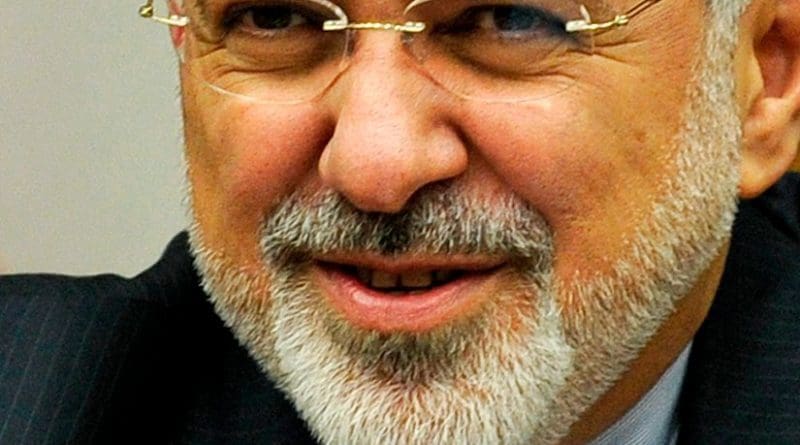Washington’s ‘Institute of Slander’ Dishes Out New Allegations – OpEd
Iran’s Foreign Minister Javad Zarif has denounced as pure lies the new allegations stemming from a Washington-based think tank known as the scientific arm of the pro-Israel lobby — regarding the Parchin military complex in Tehran. The Institute For Science and International Security (ISIS) has published a new report that relies on commercial satellite images of a particular area of Parchin that has been the focus of attention by the International Atomic Energy Agency (IAEA) since late 2011.
Although the U.S. media has taken the new ISIS report rather seriously, a close scrutiny reveals that it is technically invalid and rather ridiculous, deliberately trying to misconstrue regular work at a military complex as something “suspicious.” Case in point, the report cites the presence of two trucks in front of the building, that were ostensibly not there at the previous images, or “oil spill” from the trucks, as if that is the proof of anything. It hypocritically states: “It is difficult to fathom Iran’s motives.” But then, it does not go on to say motives for what? How about regular road work or building upgrade? Is that too difficult to fathom?
Not bothering with the obvious, the report then engages in the hypothetical hyperbole by claiming that it is probably Iran’s last-ditch effort to “sanitize” the area suspected of high explosive testing some 15 years ago. But, even the White House has reluctantly admitted that if there has been nuclear-related testing there it would not be possible to “sanitize” it, given the thousands of nuclear particles that would contaminate the area. So, in effect ,the respected scientists of the ISIS have made a mockery of their scientific pretensions by leveling these accusations — for the second time. In 2012, the ISIS made similar allegations, claiming Iran was “removing soil” from the area, that turned out to be false and was never echoed by the U.S. intelligence community.
In fact, a clue to the absurdity of these allegations can be found in the fact that the IAEA inspected Parchin twice in January and November 2005 without finding anything suspicious, much to the agency’s embarrassment. As repeatedly stated by Iran’s envoy to the IAEA at the time, Ali Asghar Soltanieh, the inspectors were given full access to the whole complex and “IAEA chose the buildings.” Clearly, if Iran had anything to hide at Parchin, and had conducted nuclear-related tests in 2000 as falsely claimed by ISIS and other pro-Israel sources, then it would not have given carte blanche to the IAEA. Yet, this important point has consistently bypassed the ‘institute of slander’ ISIS scientists.
This recalls the reaction of IAEA inspector Robert Kelly in 2012 who questioned the IAEA’s judgment in adopting the questionable data about Parchin, calling the claim that Iran had conducted hydrodynamic testing inside a cylinder a “crazy idea” particularly since the cylinder is too small for the huge 70-kg explosive attributed to it. Iran has already furnished documents to the IAEA that support its claim that the tests with conventional explosives have been done for industrial purposes and have never involved any nuclear material.
In terms of the timing of ISIS’s new allegations, coinciding with last week’s report to the U.S. Congress by the head of IAEA, Mr. Yukiya Amano, who has entered a new modality for cooperation with Iran to resolve the outstanding issues by mid-December, 2015, it is perfectly possible that the real aim might be to save the agency from a new embarrassment. Given the reports that under the new agreement, Iran has consented to new IAEA ‘managed access’ to Parchin, the distinct possibility that the IAEA would not find anything suspicious just as in its previous visits in 2005 would raise new questions about the IAEA’s credibility and over reliance on dubious intel on Iran. Thus, by giving the impression that the IAEA cannot find clues because of Iran’s “sanitizing the evidence,” the ISIS has in effect tried to cover for the agency and its current head, who has shown an uncanny ability to sheepishly follow Washington’s marching orders. This way, sufficient questions will also be cast on the new nuclear agreement, as fresh logs in the furnace of opposition to the landmark deal. On the whole, the new ISIS report fits the description of deliberate misinformation thinly-disguised as objective scientific research, thus giving a bad name to science.

